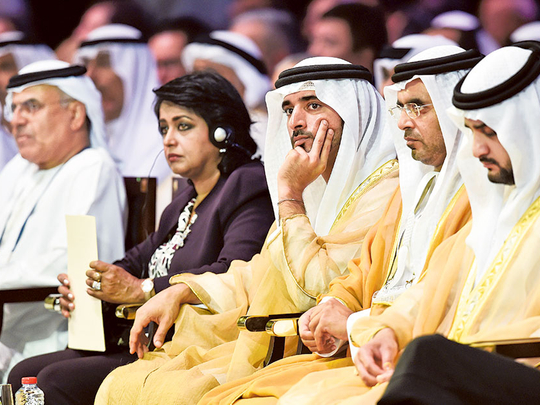
Dubai: In an effort to harness the charity efforts of regional corporates, business families and individuals in the Arab world, Dubai will soon host a network of philanthropists, Abdul Aziz Al Ghurair, Chairman of Abdullah Al Ghurair Foundation for Education and board member of Dubai Islamic Economy Development Centre, has said.
Delivering the keynote address on ‘Philanthropy in Muslim world: Harnessing the abundance of underutilised capital for social development’, Al Ghurair said there is an urgent need to build an ecosystem of philanthropy to earn, share, and develop home-grown, innovative approaches to tackling the region’s challenges; and help all citizens in the Arab world reach their full potential.
“The act of giving is our duty as Muslims and is one of the five pillars of our faith. Muslim giving is estimated between $250 billion and $1 trillion annually. Most of this giving however is unorganised and is given by individuals to recipients directly,” he said.
“All of us are bound by a shared duty to give to those in need but we also have a duty to ensure that our contributions are making the best possible impact.
“To do this, we must shift away from individual, fragmented giving. I believe that if we join our efforts, the combined impact will be much greater than what we could ever achieve on our own. Combining resources and expertise will allow us to create innovative solutions for our most pressing problems. It will allow us to scale up the solutions to remarkable levels. And it will allow us to benefit millions more citizens in sustainable ways,” said Al Ghurair.
He called for the creation of a charity ecosystem that has tangible impact, and that is transparent and accountable and innovative in finding the best solutions, a system in which philanthropists pool resources with governments, companies and investors. An example of this type of approach is the Lives and Livelihoods Fund, set up last month by the Islamic Development Bank with the Gates Foundation.
Islamic charity funds remain an underused social development instrument. Although they contain significant assets under management, these assets generate low returns and generally have minimal impact on the societies they are meant to support.
In comparison, philanthropy and endowments in developed world have adopted innovative models to ensure high returns and strong social impact. “Learning from the experience of organised charities around the world, the regional network of philanthropists will attempt to bring greater impact into charity works to improve lives in our region,” said Al Ghurair.
The Muslim world makes up less than a quarter of the global population but it houses nearly half of the world’s poverty. In many Muslim countries, infant mortality and infectious diseases are at unacceptable levels. The Middle East and North Africa region has the worst youth unemployment rates in the world, a fact made worse by a chronic skills gap and low rates of access to quality education.
Many have invested in trying to solve these challenges: governments, private donors, traditional charities. But none of them has been able to solve these challenges from within their silos. The truth is no one sector acting alone can harness sufficient innovation to effectively address the huge scale of the issues we face. “I believe that in the 21st century, with the resources, technology and networks we have, we as a society can solve these problems. Indeed, we have a duty to do so. But we will only succeed if we work together,” he said.
Arab region has a proud history of philanthropy to build on. Many of our notable philanthropists are also outstanding business leaders, leaders who have been visionary in seizing the opportunities of today’s interconnected world to build multinational companies.
“While we have revolutionised our businesses, we have failed to bring these same bold approaches to the immense challenges of poverty, ill health and social inequity. We must harness our rich and abundant tradition of charity, and ensure that it is achieving its full potential to improve lives. We must shift from traditional charity to a new ecosystem of high impact philanthropy,” said Al Ghurair.












